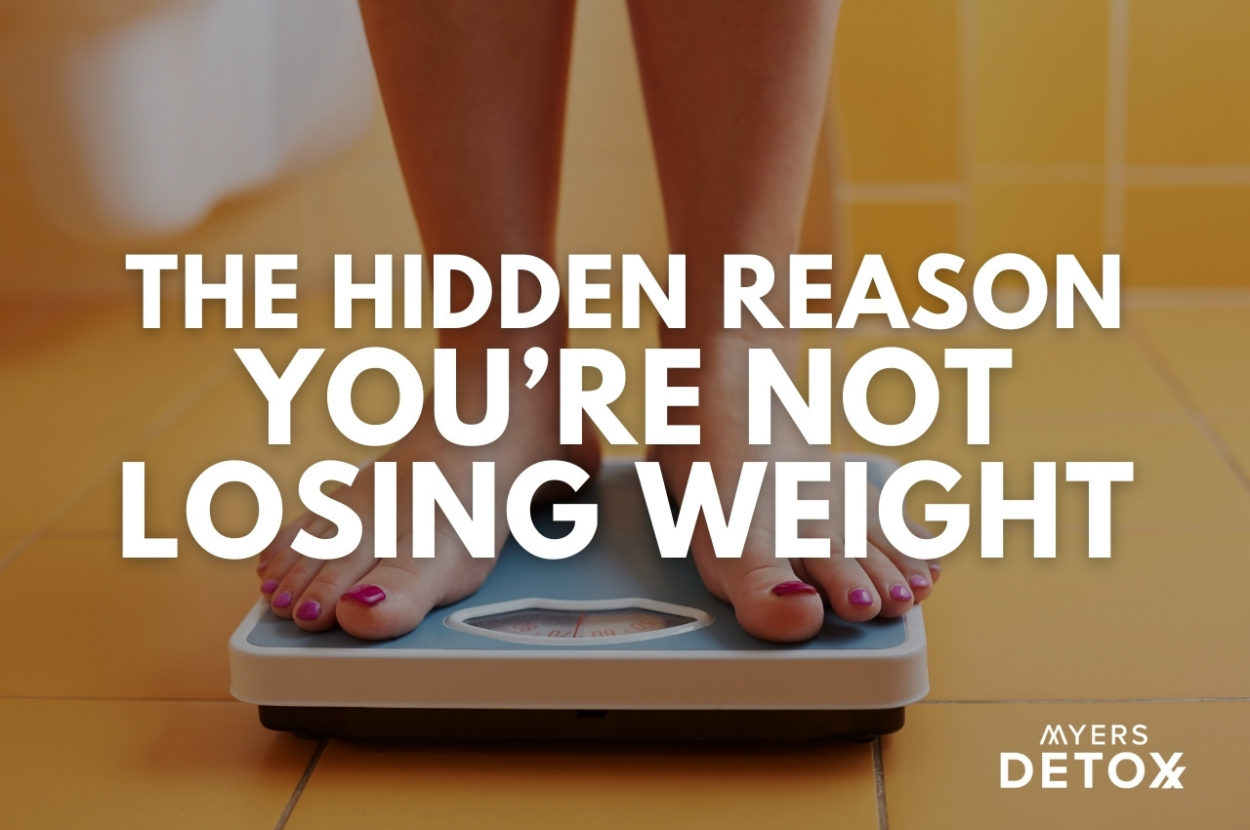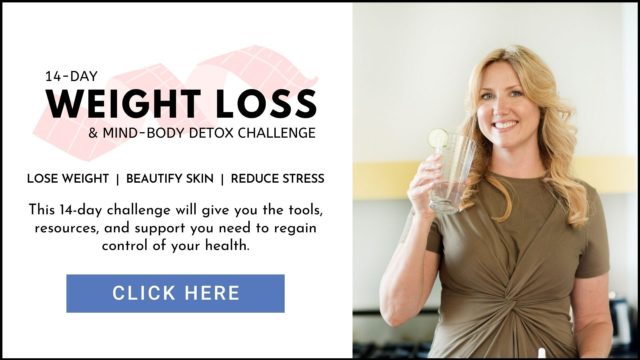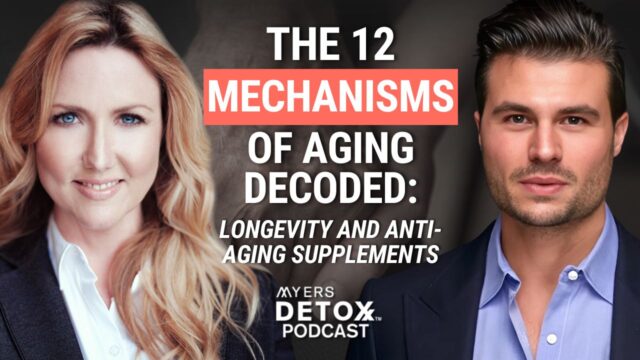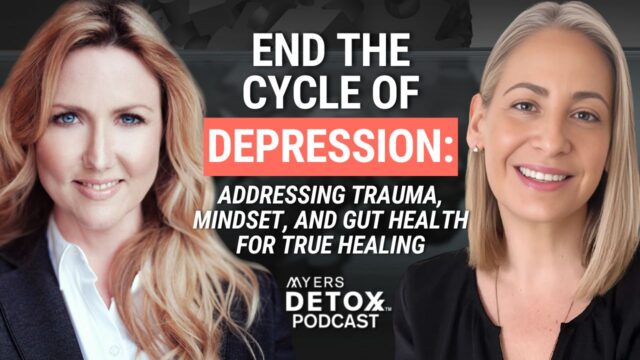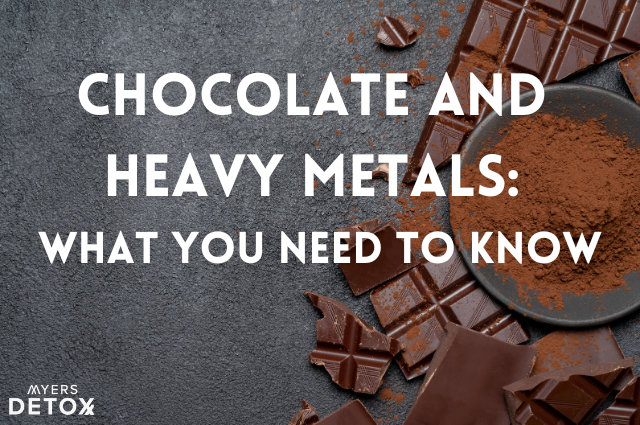There is a special kind of frustration that happens when your scale won’t budge. It’s not the same as running low on gas when you’re already late or overcooking the vegetables in the oven. Although those things can be frustrating, they can also be quickly remedied, and you know where you went wrong.
With weight loss, it’s a whole other story. You could be exercising daily, eating a healthy diet full of fresh, organic foods, and even taking supplements to support your efforts– and yet, nothing happens.
In life, we learn that you get what you give; if you put significant effort into something, it should produce positive results. Why does losing weight evade this principle?
In this article, we’ll discuss:
- The reason you’re not losing weight – despite your best efforts
- Why toxins in the environment make your body hold onto weight
- The interplay between toxins and your hormones
- The simple and effective key to getting that scale moving again
But first, check out this short video:
Environmental Toxins And Weight Gain
The weight loss industry is a multibillion-dollar behemoth, and yet millions of people struggle with their weight every day. There are fitness plans out there that include everything from supplements, to workouts, to meal plans, and some even offer meal delivery – so what gives?
What these weight loss plans are missing is one incredibly important misunderstanding – it’s not just about calories in and calories out; your body must be primed for weight loss if you want to release fat tissue.
The unfortunate truth is that the toxins in our modern environment make it incredibly challenging to get the ball rolling on weight loss. Toxins coming from the water you drink, the food you eat, and even the air you breathe are all adding to the burden that your body has to manage. What’s more, their influence on your metabolism makes it nearly impossible to get into fat-burning mode.
Two of the most damaging classes of environmental toxins are obesogens and heavy metals. These compounds can halt your weight loss in its tracks and create metabolic chaos in their wake.
Obesogens
Obesogens are a class of toxic compounds that were named “obesogen” for their impact on fat storage. There are three mechanisms by which obesogenic compounds are hypothesized to create the conditions that make it challenging for your body to lose weight; these include:
- Hormone Disruption
Obesogens are also referred to as endocrine-disrupting compounds (EDCs) for their impact on your hormonal system.The balance of your hormones is an incredibly intricate system that requires a dance between several different types of hormones. Whether it be stress hormones, sex hormones, or hormones that regulate metabolism – each of these individual systems work together to maintain your overall hormonal structure. When one part of the organization is off-balance, it impacts all other parts.EDCs come in as external compounds that can mimic your natural hormones and throw off the balance of this delicate system. How does this work?Each one of your hormones has a unique structure that allows it to dock on specific receptors in your body. When hormones dock on their receptors, they either upregulate or downregulate some activity in your body, depending on which receptor they’re interacting with. The human body is very intelligent, and therefore each receptor only accepts hormones that fit into their unique structure.The problem is, EDCs have a similar structure to your hormones. This means that their activity in your body can create an imbalance as your receptors can’t tell the difference between your natural hormones and the EDCs you ingest from your environment.Many people don’t realize that hormonal balance is absolutely vital to a healthy weight. When your hormones are out of balance, your body will start to hold on to fat cells, which is why the rise of EDCs in our environment has been directly correlated with an increase in obesity rates[1].Estrogen and insulin are two hormones that tend to be most impacted by EDCs. When these hormones are disrupted, it creates an imbalance in your metabolism, energy production, and appetite – predisposing you to weight gain[2][3][4]. - Increased Number Of Fat Cells
Research suggests that another way in which obesogens induce weight gain is by actually increasing the number of fat cells in your body.Exposure to obesogens, especially in early childhood, appears to modify the epigenome and impact stem cells – biasing them to become fat cells instead of bone cells. This preprograms your body to tend toward weight gain at the expense of healthy bones[5]. - Increased Need For Toxin Storage
In addition to metabolism disruption, hormonal imbalance, and increased tendency for fat cell development, obesogens create the need for increased storage capacity for toxins.When you ingest toxins, your body immediately detects them and tries to move them out of circulation to avoid damage to your vital organs. As an intelligent, protective mechanism, these toxins get sequestered away in your fat cells where they can cause little harm.The problem is, the more toxins you ingest, the greater the need for fat cells to store them. And to make matters worse, since these toxins create the conditions for increased fat cell development, they basically take root in your body and create more “storage units” for themselves – increasing your capacity to hold onto both weight and toxins from your environment[6].
Where Are Obesogens Found?
So how exactly do these toxic compounds get into your body? Obesogenic compounds can be found in a wide range of food and personal care products such as:
- Laundry detergent
- Dish soap
- Shampoo and condition
- Body lotion
- Dryer sheets
- Aftershave
- Body soap
- Perfume/fragrance
- Candles
- Air fresheners
- Perfume
- Plastic containers
- Foods sprayed with pesticides
Common obesogenic compounds include:
- BPA in plastics
- Nicotine
- MSG (yeast extract)
- Arsenic
- Parabens (preservatives in beauty products)
- Fragrance (contain phthalates)
- Pesticides, herbicides, insecticides
To avoid obesogens, your best bet is to buy all-natural personal care products and avoid foods that have been sprayed with pesticides as much as possible.
Several personal care and home care brands are now advertising that they’re free of these unwanted chemicals, and choosing organic over conventional produce will help you avoid pesticides, herbicides, and insecticides.
Heavy Metals
Heavy metals are another toxic insult that contributes to weight gain and obesity.
Similar to how obesogens can impact hormonal balance, heavy metals can also influence your hormones, causing shifts in metabolism and fat loss. Instead of mimicking the actions of your hormones, metals that you ingest can cause structural and functional changes in the glands that govern your hormones, such as the adrenals and thyroid gland. Heavy metals have also been shown to disrupt the balance of your sex hormones[7].
Research also shows that heavy metals may disturb metabolism by substituting for other vital minerals and micronutrients and creating oxidative stress in your body[8].
Although one single mechanism hasn’t been identified for how heavy metals contribute to obesity, what is clear is that there is a strong correlation between the presence of these compounds in the body and the incidence of weight gain[9].
Heavy metals include compounds such as:
- Lead
- Mercury
- Cadmium
- Arsenic
- Thallium
The most common sources of heavy metals include[10][11]:
- Conventionally grown food
- Unfiltered water
- Air pollution
- Pesticides and fertilizers
- Personal care products
To avoid heavy metals in the environment, follow the same guidelines as you would for avoiding obesogens. Both of these classes of compounds can be found in the food supply, as well as personal and home care products. It’s crucial to keep in mind that if you put something on your skin, it is the same as ingesting it – it will get into your circulation just the same.
Stop Dieting and Start Detoxing For Weight Loss
If dieting and exercising aren’t working for you, then there is just one place left to look –how is your toxic load impacting your ability to lose weight?
Keep in mind that although your fat tissue may be unsightly and frustrating to deal with, it’s there for a very good purpose, and that’s to keep these toxins out of your circulation. If your fat tissue wasn’t there to sequester away toxins, then your body would be inundated, and your vital organs would be in big trouble.
Therefore, before you can think about getting rid of those fat cells, you must work on getting rid of the toxins that live inside them.
This is why any weight loss plan that will ever produce results must incorporate detoxification support.
As an expert in detox, I created a 14-Day Weight Loss Challenge that includes everything you need to get that scale to budge and finally experience lasting weight loss.
The 14-Day Weight Loss Challenge includes:
- 14-day meal plan filled with foods that will help your body naturally detox your fat cells
- Cookbook with simple and delicious recipes
- Webinars to guide you on your journey
- 6 “how-to” videos for weight loss, stress relief, skin detox, emotional eating, and more
- 11 guides in our “health reset” e-library
- And more
I designed this challenge to make weight loss an easy and simple process by guiding you on how to work with your body, not against it. While most weight loss plans leave you feeling tired, drained, and full of cravings, you can expect to feel more clear-headed, energetic, and grounded with the tips and tools that I share.
And best of all, this program is meant to empower you to change the way your body works and deals with toxins (and, therefore, fat). You can come back to these practices whenever you need a boost.
Takeaway
Although weight loss challenges can be incredibly frustrating, there is no need to give up on your goals. They say that the definition of insanity is doing the same thing over and over and expecting different results.
With that in mind, if you’ve been fighting the battle of weight loss for a while and not getting anywhere — it’s time to try something new.
The fact of the matter is, if your body is full of toxic compounds, it would be foolish for your fat cells to let go. This would fill your circulation with toxins that could potentially cause severe damage to your organs. Therefore, the only way to work with your body and achieve lasting weight loss is to start with a detox.
For more information, check out the 14-Day Weight Loss Challenge and begin your journey today.


